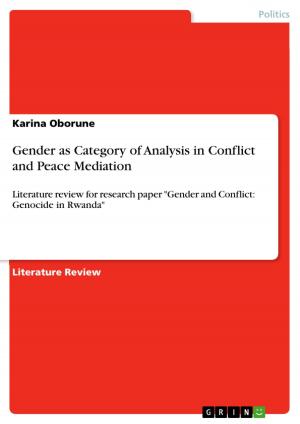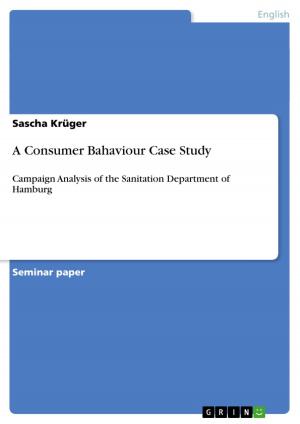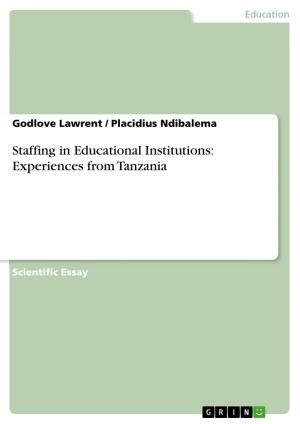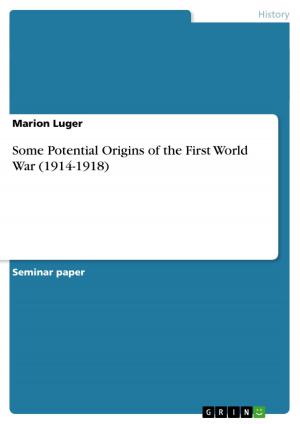Caryl Phillips' 'Cambridge' - The Ambiguity of a Slave's Identity through (Re)Naming
Fiction & Literature, Literary Theory & Criticism, British| Author: | Marylise Thill | ISBN: | 9783656114826 |
| Publisher: | GRIN Publishing | Publication: | January 31, 2012 |
| Imprint: | GRIN Publishing | Language: | English |
| Author: | Marylise Thill |
| ISBN: | 9783656114826 |
| Publisher: | GRIN Publishing |
| Publication: | January 31, 2012 |
| Imprint: | GRIN Publishing |
| Language: | English |
Seminar paper from the year 2011 in the subject English Language and Literature Studies - Literature, grade: 13, University of Louvain, language: English, abstract: In our postcolonial time, many novels have tackled and still tackle issues such as slavery, racism, belonging and identity. In this essay, we will mainly focus on one author that belongs to this wave, namely Caryl Phillips. He was born in St. Kitts, a Caribbean island, in 1958.1 He 'came to Britain at the age of four months [...] and studied English Literature at Oxford University'.2 He is currently a well-known postcolonial writer whose works largely focus 'on the legacy of the Atlantic slave trade and its consequences for the African Diaspora'.1 In this essay, we will analyze Phillips' fourth novel, Cambridge3, which won the Sunday Times Young Writer of the Year Award.1 We will deal with the issue of the identity of the slaves, especially with regards to naming. In fact, slaves were always given a new name by their owners. Thus, we will analyze the impact of this naming on the slaves' identity and the ambiguity to which it can lead. However, we will first provide a definition of the concept of 'identity'. Then, we will go through how naming was applied in the history of the slaves and what was its significance. Finally, we will undertake an analysis of two characters of Cambridge and focus on their identity with regards to their different names. In addition, we will refer to another recent postcolonial novel, namely The Long Song4 by Andrea Levy.
Seminar paper from the year 2011 in the subject English Language and Literature Studies - Literature, grade: 13, University of Louvain, language: English, abstract: In our postcolonial time, many novels have tackled and still tackle issues such as slavery, racism, belonging and identity. In this essay, we will mainly focus on one author that belongs to this wave, namely Caryl Phillips. He was born in St. Kitts, a Caribbean island, in 1958.1 He 'came to Britain at the age of four months [...] and studied English Literature at Oxford University'.2 He is currently a well-known postcolonial writer whose works largely focus 'on the legacy of the Atlantic slave trade and its consequences for the African Diaspora'.1 In this essay, we will analyze Phillips' fourth novel, Cambridge3, which won the Sunday Times Young Writer of the Year Award.1 We will deal with the issue of the identity of the slaves, especially with regards to naming. In fact, slaves were always given a new name by their owners. Thus, we will analyze the impact of this naming on the slaves' identity and the ambiguity to which it can lead. However, we will first provide a definition of the concept of 'identity'. Then, we will go through how naming was applied in the history of the slaves and what was its significance. Finally, we will undertake an analysis of two characters of Cambridge and focus on their identity with regards to their different names. In addition, we will refer to another recent postcolonial novel, namely The Long Song4 by Andrea Levy.















